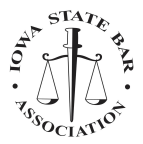A common misconception regarding sexual harassment is that an isolated incident of inappropriate conduct is enough to show sexual harassment has occurred. In reality, for words or actions to constitute sexual harassment, the harassment must be severe or pervasive enough that it interferes with a victims work environment, affecting the terms of their employment, or result in an adverse employment action against the victim such as termination of employment.
When sexual advances, requests for sexual favors, and the like, do explicitly or implicitly interfere with an employee’s ability to perform their job, create a hostile work environment, or subjects the employee to a significant change in working conditions or another adverse employment action, it is the definition of sexual harassment.
Sexual harassment often falls into two categories: one, where a victim is subject to a hostile, intimidating, or offensive environment, or two, they suffer an employment action such as termination when they rebuff the advances or report the harassment. All too often sexual harassment may be a quid pro quo (something for something) proposition if the harasser is a supervisor or other person who has the authority to direct an employees work activities or is in a position to influence employment decisions.
In cases where harassment results in a tangible employment action such as firing or hiring, failure to promote, demotion, undesirable reassignments or work assignments, benefits loss, or pay decisions, an employee may rightly believe they were subject to retaliation. If a victim is not subject to a tangible employment action, but nevertheless is subject to harassment that has created a hostile intimidating or offensive work environment, and their employer fails to act, the employer may be liable.
If an employee is subject to unwelcome conduct based on sex – harassment that is severe and pervasive to the point of making it difficult to perform the duties of the their job, or they are subject to an adverse employment action, they may have a good case for sexual harassment and should contact an experienced sexual harassment lawyer. Contact Des Moines workplace sexual harassment lawyer Marc Humphrey for help at 515-331-3510.






